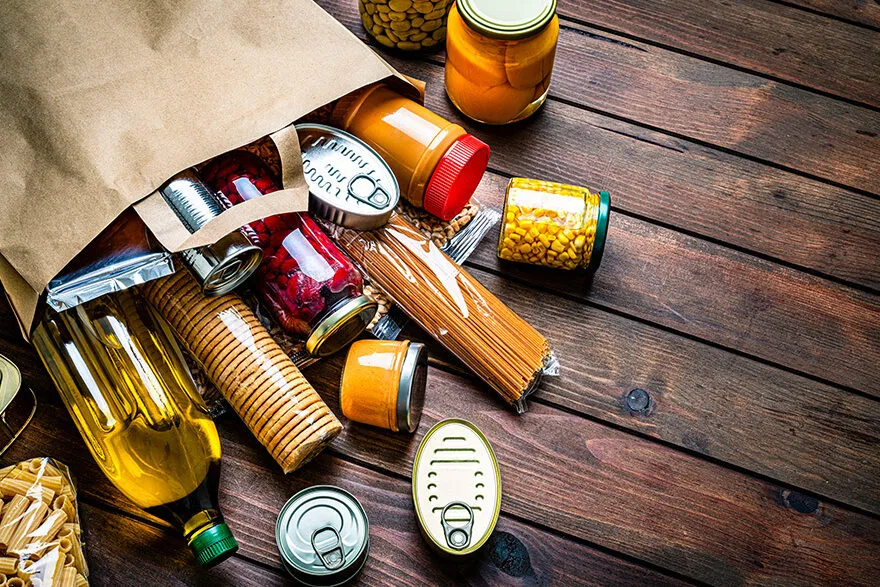
Artificial flavors help manufacturers in several industries put a safe, reliable and affordable product on store shelves. Artificial flavorings are necessary to meet consumer demand, limit consumer price volatility and keep vital products like medicines stable and effective.
Go beyond the label with our artificial flavor deep-dive …
What Are Artificial Flavors?
The FDA defines an artificial flavor as any substance designed to impact flavor that is not derived from a natural source such as plants, animals or fermented products. Both synthetic and natural ingredients are engineered and synthesized by various flavor engineering processes. The difference is simply the source of the raw material.
How Are Artificial Flavors Made?
Flavorists create artificial flavors by examining the chemical composition of the natural substance they’re looking to recreate. Once the molecular structure is defined, flavorists draw on a range of compounds that matches the flavor profile of the natural flavor.
Creating natural flavors is similar, although flavorists often rely on a mix of natural substances to design a viable ingredient. Without engineering natural flavors, they wouldn’t retain their chemical structure through the manufacturing process or for sustained periods on the store shelf.
Artificial and natural flavors are the same at the molecular level. From a nutritional standpoint, there is no difference. The names communicate where the flavor molecule originated.
Related: Behind the Label: Natural Flavor Ingredients
Why You’ll Find Artificial Flavoring in Every Aisle of the Grocery Store
Artificial flavors address problems faced by manufacturers and consumers alike. The process of inventing, formulating and adapting these materials is multifaceted. Engineers and their teams are pushed to provide solutions to changing consumer tastes, raw material availability and supporting new products in several industries, including:
- Cosmetics
- Food & Beverage
- Nutraceuticals
- Pharmaceuticals
- Personal care
The Benefits of Artificial Flavors
Artificial flavoring has three key benefits that ensure its place in thousands of consumer products worldwide.
Artificial Flavoring Is Cost Effective
Flavor engineers can design and produce artificial flavors at a substantially lower cost than natural alternatives. This helps control input costs and plays a role in insulating many products from price volatility. When cherry crops are scarce, cherry prices increase dramatically. Without an artificial alternative, many food, beverage and medicine products that rely on cherry flavoring would experience severe price increases.
Artificial Flavoring Meets Consumer Demand
There aren’t enough vanilla beans grown each year to meet the consumer demand for vanilla flavoring. Many popular flavors, such as passionfruit or pumpkin spice, rely on natural materials that aren’t agriculturally scalable to meet global demand. With climate change impacting growing seasons and crop viability around the globe, the bioavailability of natural flavors may place a renewed importance on the ability to engineer alternatives safely.
Artificial Flavoring Is Safe
Artificial food flavors are carefully monitored and inspected from creation to implementation in a finished product. These facilities’ sanitary conditions and stringent storage requirements ensure the safest possible results.
Artificial Flavoring Is Sustainable
Emissions caused by growing, processing and transporting natural ingredients exceed those associated with artificial flavors. Synthetic materials require less processing, less energy and a substantially shorter production schedule.
Can You Be Allergic to Artificial Flavors?
There is no conclusive evidence that artificial flavors cause allergic reactions. Like all food additives, artificial flavors must pass several safety tests before being approved. Notably, most natural and artificial flavors are made from the same chemicals and share a nearly identical molecular structure. Natural flavors derived from common allergens like eggs or wheat are considered a higher risk.
Innovative Flavor Solutions – That’s Tilley
From sourcing artificial flavors to engineering custom formulations to help get your product to market, Tilley Distribution provides real-world solutions to any production challenges.
Leverage global distribution capabilities, laboratory and technical support, plus an experienced team of market experts by speaking with a Tilley representative today.
